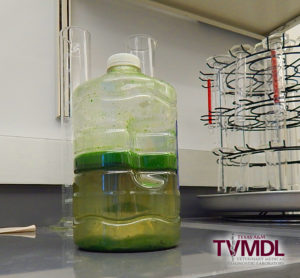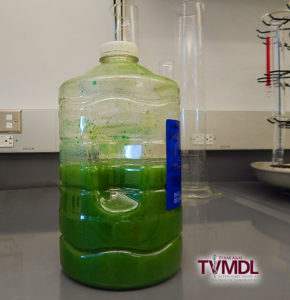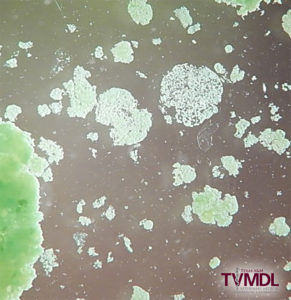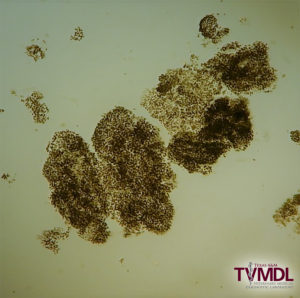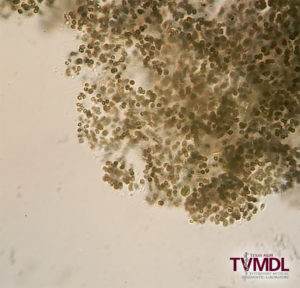Cyanobacteria: No winter break this year
By Cat Barr, PhD, DABT
Blue-green algae (cyanobacteria) have barely taken a break this winter. The Texas A&M Veterinary Medical Diagnostic Laboratory (TVMDL) has already had several positive samples submitted this year. The most frequently observed blue-green algae that cause blooms in the greater Brazos Valley area are Microcystis sp., Oscillatoria sp., and Anabaena sp. These species all tend to produce microcystins, which are hepatotoxic to all species.
In a recent case, clinical history noted a group of dogs playing in a pond thick with Microcystis colonies and a few Oscillatoria colonies. History noted the owners hosed all the dogs off with water until the water ran clear and all the algae was gone. The owners removed all the dogs from the pond area and contacted their veterinarian out of precaution.
Water and serum were submitted TVMDL for testing. Following test results, the dogs’ liver enzymes were monitored, and prophylactic liver support was provided. Five days after their exposure, no increase in serum liver enzyme concentrations had been observed in any of the animals.
Remember, in the case of a potential toxin exposure, the first step is always to decontaminate.
For more information about TVMDL’s toxicology services, visit tvmdl.tamu.edu or call the College Station laboratory at 1.888.646.5623.
